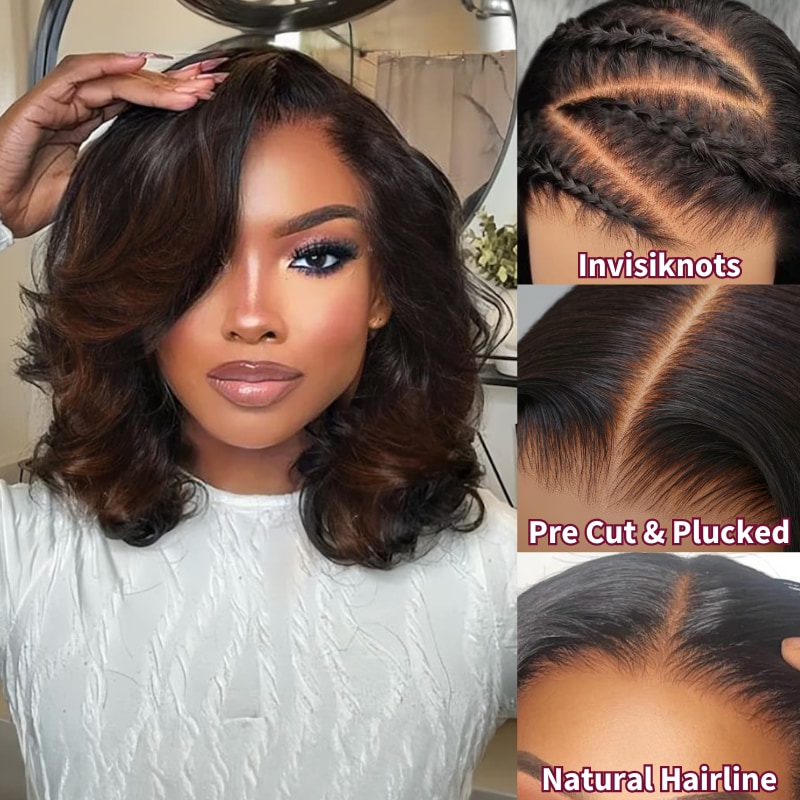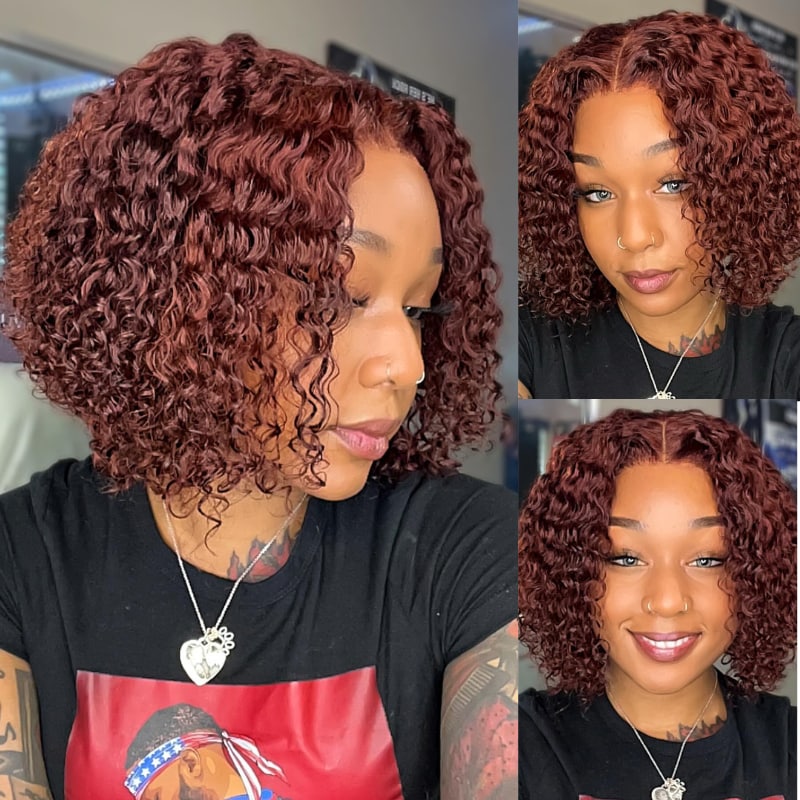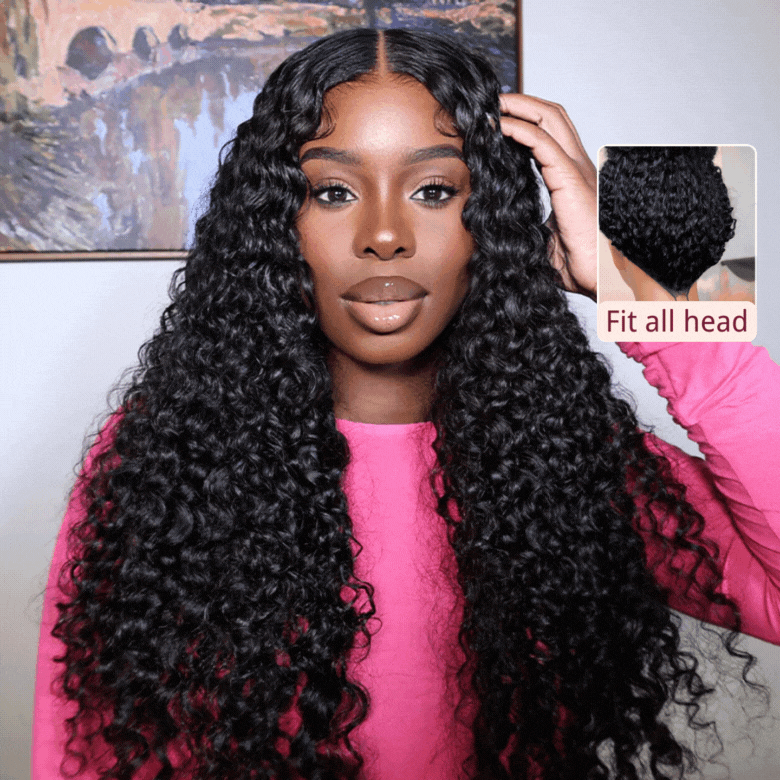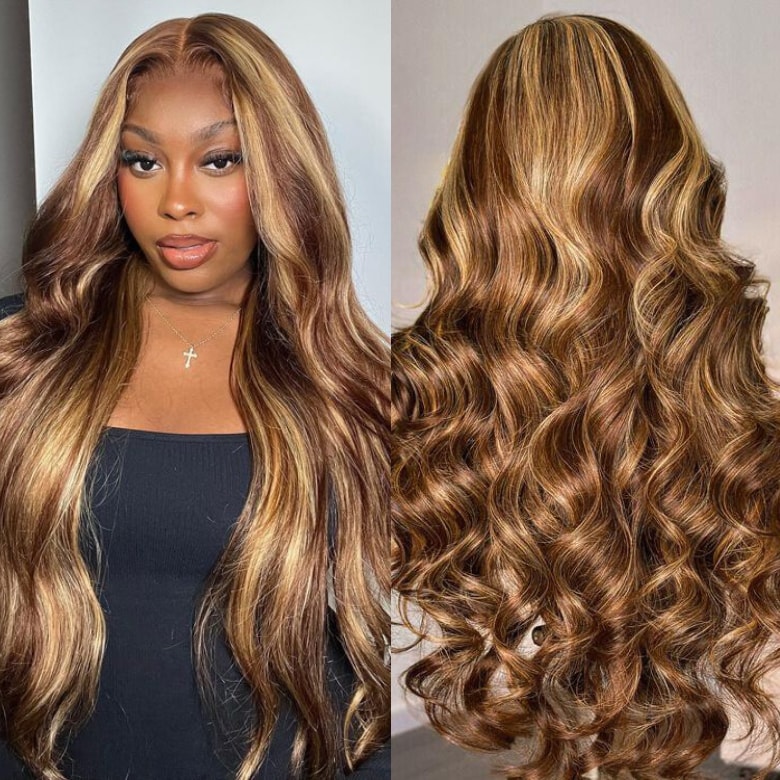- HOME
- HUMAN HAIR WIGS
- PUT ON AND GO WIG
- CLOSURES & FRONTALS
- HUMAN HAIR WEAVE
- U/V Part Wigs
- SUPER SAVING
- WHOLESALE

- Top Selling
 $128.00$196.92
$128.00$196.92 $122.00$187.69
$122.00$187.69 $99.00$330.00
$99.00$330.00 $129.50$199.23
$129.50$199.23 $62.00$77.50
$62.00$77.50 $99.00$247.50
$99.00$247.50 $89.00$136.92
$89.00$136.92 $129.00$198.46
$129.00$198.46
- Popular Posts
- How Many Bundles Do You Need With A Closure Or Frontal
- Different Types of Human Hair BrazilianPeruvianMalaysian And Indian Hair
- 9 Effective Ways To Tame Frizzy Curly Wigs Easily
- V Part Wig VS U Part Wig What Is The Difference
- How Long Does A Wig Install Last
- Customer Share
-
 Beautyforever Deep Wave Put on and Go Glueless Lace Wig 13x4 Pre-Evertyhing Lace Front Human Hair Wigs$ 139.00$ 213.85
Beautyforever Deep Wave Put on and Go Glueless Lace Wig 13x4 Pre-Evertyhing Lace Front Human Hair Wigs$ 139.00$ 213.85 -
 Beautyforever Yaki Bob 7x5 and13x4 Glueless Lace Wig Natural Looking Yaki Straight Bleached Knots Wigs$ 108.00$ 161.19
Beautyforever Yaki Bob 7x5 and13x4 Glueless Lace Wig Natural Looking Yaki Straight Bleached Knots Wigs$ 108.00$ 161.19 
 Beautyforever 13x4 Pre-Everything Lace Front Wig Spiral Curls Black to Chestnut Brown Color Put on and Go Human Hair Wig$ 161.72$ 241.38
Beautyforever 13x4 Pre-Everything Lace Front Wig Spiral Curls Black to Chestnut Brown Color Put on and Go Human Hair Wig$ 161.72$ 241.38
 Beautyforever Short Deep Small Curly 7x5 Bye Bye Knots Reddish Brown and Black to Chestnut Brown Color Put on and Go Wig with Invisible Knots$ 122.66$ 183.08
Beautyforever Short Deep Small Curly 7x5 Bye Bye Knots Reddish Brown and Black to Chestnut Brown Color Put on and Go Wig with Invisible Knots$ 122.66$ 183.08-
 Beautyforever Put on and Go Glueless Lace Wig Yaki Straight 7x5 Bye Bye Knots Human Hair Wig with Pre-Plucked Natural Hairline$ 99.00$ 330.00
Beautyforever Put on and Go Glueless Lace Wig Yaki Straight 7x5 Bye Bye Knots Human Hair Wig with Pre-Plucked Natural Hairline$ 99.00$ 330.00 -
 Beautyforever 7x5 ByeBye Knots Wig Reddish Brown Body Wave Put on and Go Glueless Wigs with Pre-Bleached Knots$ 132.97$ 198.46
Beautyforever 7x5 ByeBye Knots Wig Reddish Brown Body Wave Put on and Go Glueless Wigs with Pre-Bleached Knots$ 132.97$ 198.46 
 Beautyforever Bye Bye Knots Wig 7x5 Pre Cut Lace Water Wave Pre Bleached Invisible Knots Glueless Wig$ 133.90$ 199.85
Beautyforever Bye Bye Knots Wig 7x5 Pre Cut Lace Water Wave Pre Bleached Invisible Knots Glueless Wig$ 133.90$ 199.85-
 Beautyforever EasiContour V Part Jerry Curly Wig Glueless Natural Black Soft 100% Unprocessed Human Hair Wigs$ 89.00$ 136.92
Beautyforever EasiContour V Part Jerry Curly Wig Glueless Natural Black Soft 100% Unprocessed Human Hair Wigs$ 89.00$ 136.92 -
 Up To 60% | Beautyforever U/V Part Wig Human Hair Body Wave Hair 200% Density Natural Color With Straps Combs$ 59.90$ 149.75
Up To 60% | Beautyforever U/V Part Wig Human Hair Body Wave Hair 200% Density Natural Color With Straps Combs$ 59.90$ 149.75 -
 Beautyforever 7x5 ByeBye Knots Wig Pre Cut Glueless Lace Honey Blonde Highlight Body Wave Wigs with Invisible Knots$ 139.15$ 207.69
Beautyforever 7x5 ByeBye Knots Wig Pre Cut Glueless Lace Honey Blonde Highlight Body Wave Wigs with Invisible Knots$ 139.15$ 207.69 -
 Beautyforever Highlight Blonde Body Wave Glueless Lace Wig 7x5 and 13x4 Pre-Everything Lace Front Wigs with Invisible Knots$ 109.00$ 363.33
Beautyforever Highlight Blonde Body Wave Glueless Lace Wig 7x5 and 13x4 Pre-Everything Lace Front Wigs with Invisible Knots$ 109.00$ 363.33 
 Beautyforever 13x4 Pre-Everything Frontal Kinky Straight Wig Pre-Bleached and Pre Cut Lace Put on Go Glueless Wigs$ 162.86$ 243.08
Beautyforever 13x4 Pre-Everything Frontal Kinky Straight Wig Pre-Bleached and Pre Cut Lace Put on Go Glueless Wigs$ 162.86$ 243.08
How To Apply A Lace Front Wig And Make It Look Natural
- Wigs
Recently, human hair wigs have become widely available to everyone for their versatility. Although the application process usually requires adhesive products that only a professional can properly use, there are some lace front wigs that you can apply at home with tape or glue.
1. How To Install A Lace Front Wigs?
Preparation:
Wig cap, Human hair wig, Scissors, Scalp protector, Wig adhesive, Small adhesive brush, Blow dryer, Wig clips, Hair clamps, Wig tape
Step 1: Get your wig ready.
Wigs enhance your style and beautify your facial features so wear it with confidence. Wash and condition with good care and occasionally take your wig for a visit to the stylist to style it any way you like.
Step 2: Do a skin test.
Some people are allergic to the chemicals used to keep a wig in place. Do a skin test to determine whether or not you are allergic. First, dab a small amount of liquid adhesive or double-sided wig tape onto the back of your hand. Next, observe the adhesive for at least twenty-four hours. If the skin becomes red or irritated, purchase a hypoallergenic wig tape or adhesive to use instead. If the skin is unaffected, you can safely wear the wig.
Step 3: Flatten your hair.
The flatter your hair is against your head, the better the wig will look. You can braid short hair into cornrows or mold it against your head using gel and bobby pins. For long hair, first, tie your hair in a low ponytail. Next, wrap the ponytail into a flat bun and secure it with bobby pins. Allow any gel or hairspray to dry before continuing.
Step 4: Put on a wig cap.
Wig caps, or stocking caps, are soft caps that flatten your hair and help the wig stay in place. Gently pull on the stocking cap, being careful not to disturb your flattened hair. Adjust the cap so that it barely covers your hairline. If you have little to no hair, skip this step. Otherwise, the cap will slide around your head and bunch up under your wig. Make sure all of your hairs are tucked into this cap, even the hairs on the nape of your neck.
Step 5: Clean your hairline skin.
Wash your skin with a gentle cleanser to ensure the application area is oil-free and blot it dry with a towel. Next, dab some rubbing alcohol on a cotton ball and wipe it along your hairline. This will remove the excess oils on your skin. Spray scalp protector directly on your head to act as a barrier between your skin and the adhesive. Allow the serum to dry completely before continuing. Scalp-protecting serums can be bought at wig supply shops and online.
Step 6: Test the fit of the wig.
Before you apply any adhesives, you need to make sure the wig fits properly. To do so, place the wig on your head and line it up with your natural hairline. If the wig has tightening straps on the inside, you may need to adjust these for a proper fit. If the wig doesn’t fit and it doesn’t have any tightening straps, contact the manufacturer for help. If you can feel a strong ring of pressure around your scalp, the wig is too tight. Loosen the straps slightly. If the wig slides around when you move your head, the wig is too loose. Tighten the straps.
Step 7: Trim the lace.
Once your wig fits correctly, you have to trim the lace on the lace front wigs. This only needs to be done the first time you use your wig, and it does not need to be done if the lace has already been trimmed by the manufacturer. Utilize a couple of clasps to pull the hair far from your face. Next, using sharp pinking shears, trim the lace along your natural hairline. You should leave around 1/8 inch (3 mm) of lace. This will just must be done the first time when you wear the wig.
Step 8: Remove the wig and set it aside.
Carefully pull the wig off, leaving all the clips in, and set the wig on a clean flat surface. Arrange the wig so that it’s easy to see what part goes on the hairline and what part goes on the nape of the neck. If you have to loosen any straps to get the wig off, your wig is too tight.
Step 9: Apply wig tape.
Cut six to ten small pieces of wig tape. Next, line your hairline with the small pieces of tape by pressing the sticky side against your skin. Use a mirror while you do this to create an even hairline. Once the tape is applied, remove the thick foam padding to reveal the other side of the tape. Make sure all of the pieces are touching. Otherwise, you may have loose gaps in your hairline. Wig tape can be bought at wig supply stores or online.
Step 10: Use a liquid adhesive.
If you don’t want to use wig tape, you can use a liquid lace adhesive instead. Apply adhesive with the brush to areas onto which the wig will attach. Using the cool air setting, blow-dry the adhesive for about 30 seconds. If you use a soft bond adhesive, allow the glue to dry long enough to become tacky before applying the wig. If you use a hard bond adhesive, you can apply the wig immediately.
Step 11: Apply the wig.
Carefully pull the wig on. First, adjust the edge of the wig so that the hairlines match. Next, adjust the back of the wig so that it hangs naturally over your hair. Lastly, press the lace of the wig into your adhesive or wig tape. Once you press the lace into the adhesive or wig tape, it’s very hard to remove. Be sure that the wig is perfectly aligned before doing so.
Step 12: Style your hair.
If your wig is made of human hair, you can use regular brushes, hot styling tools, and hair products. If your wig is synthetic, avoid using regular brushes and hot styling tools. Instead, use a wide-toothed comb or wig brush to adjust your hair.
2. How To Remove Your Lace Wigs?
Preparation: Adhesive Remover, 99% Alcohol
Steps: The Adhesive remover and 99% Alcohol will assist in removing your unit. Spray the adhesive remover generously and allow the glue remover to work.
Tips: Do not pull or tug the lace, it will damage your lace and your hair. Alternate between using the adhesive remover and the 99% Alcohol to remove your lace.
Do not pull the lace or attempt to force it off, or you may damage your skin and the lace. You should be able to roll the excess glue off of your skin and wig once the remover has set.
Submit Comment